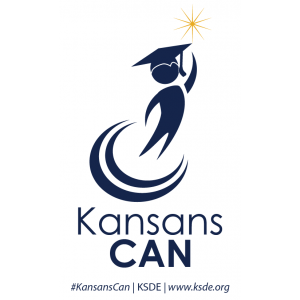IC: Curriculum Development
The Board recognizes the need for and value of a systematic, ongoing program of curriculum development and evaluation. The design and implementation of the K-12 curriculum will be consistent with the Board's adopted mission and applicable goals, state laws, and State Board of Education rules. The curriculum will be designed and implemented using a standards-based curriculum approach, reflecting standards, benchmarks and indicators aligned to the Kansas Curricular Standards for each subject. An environment to support curriculum delivery must be created and maintained by all functions of the organization.
The curriculum is designed to provide teachers and students with the Board's expectations of what students are to learn. Teachers are expected to teach the curriculum of the district. Subject area written curriculum guides shall be developed for all grade levels and subjects in the district. The expectations are that:
- All curriculum will be documented in writing;
- The curriculum will be reviewed and updated as needed on a regular cycle of review;
- Teachers will have copies of curriculum guides which include prioritized indicators and use the indicators in the guides to develop daily lesson plans; and
- Administrators will work with teachers to maintain consistency and alignment between the written curriculum and the curriculum indicators actually taught.
The principal shall ensure that optimum use is made of available written curriculum materials and instructional time.
All programs, including those for special population students, are to be aligned to the district curriculum.
While instructional differentiation is expected to occur to address the unique needs of specific students, that instruction shall be derived from a set of curriculum learnings common to all students. There will be equitable access to the curriculum for all students.
The Superintendent shall establish assessment approaches for determining the effectiveness of instructional programming at district, campus, and classroom levels. Assessments will focus on determining the extent to which students are achieving and maintaining mastery of curriculum indicators and the extent to which instructors are displaying effective conveyance of curriculum in the classrooms.
Teachers will conduct frequent assessment of students on the curriculum indicators at the designated levels of priority. Multiple measures including teacher-made tests shall be used to determine patterns of student achievement. Teachers and supervisors shall use test results to assess the status of individual student achievement, to continuously regroup students for instruction, to identify general achievement trends of various groups of students, and to modify curriculum and/or instruction as warranted by assessment results.
Principals shall review assessments to help teachers ensure the assessments are congruent with the written curriculum.
Modification
The board deems it essential that the school system continually develop and modify its curriculum to provide a common direction of action for all instruction and programmatic efforts in the district and to meet changing needs.
All curriculum decisions, including but not limited to, elimination or addition of programs and courses and extensive content alteration, will be subject to board approval. Since the curriculum is a system decision, not a campus or employee decision, curriculum proposals from the employees will be presented first to central administration. If the proposal is acceptable at that level, it will then be presented to the Board.
Personnel
Outside resource and district personnel may be used in curriculum development (See BBG)
Financial Resources
The administration shall ensure that the district's budget becomes a document that reflects funding decisions based on the organization's educational goals and priorities: a performance-driven budget. The budget development process will ensure that goals and priorities are considered in the preparation of budget proposals and that any decisions related to reduction or increase in funding levels will be addressed in those terms.
The board encourages the superintendent to secure federal, state and private grants, or other alternative funding sources for use in curriculum development. The certified staff is encouraged to utilize available material and community resources to assist in developing the instructional curriculum and extending beyond the traditional classroom setting.
Evaluation of Instructional Program (See IJ)
A program evaluation component that guides program redesign around the district curriculum and associate programs, as well as program delivery is an integral part of the district instructional program.
Approved: September 7, 2010







